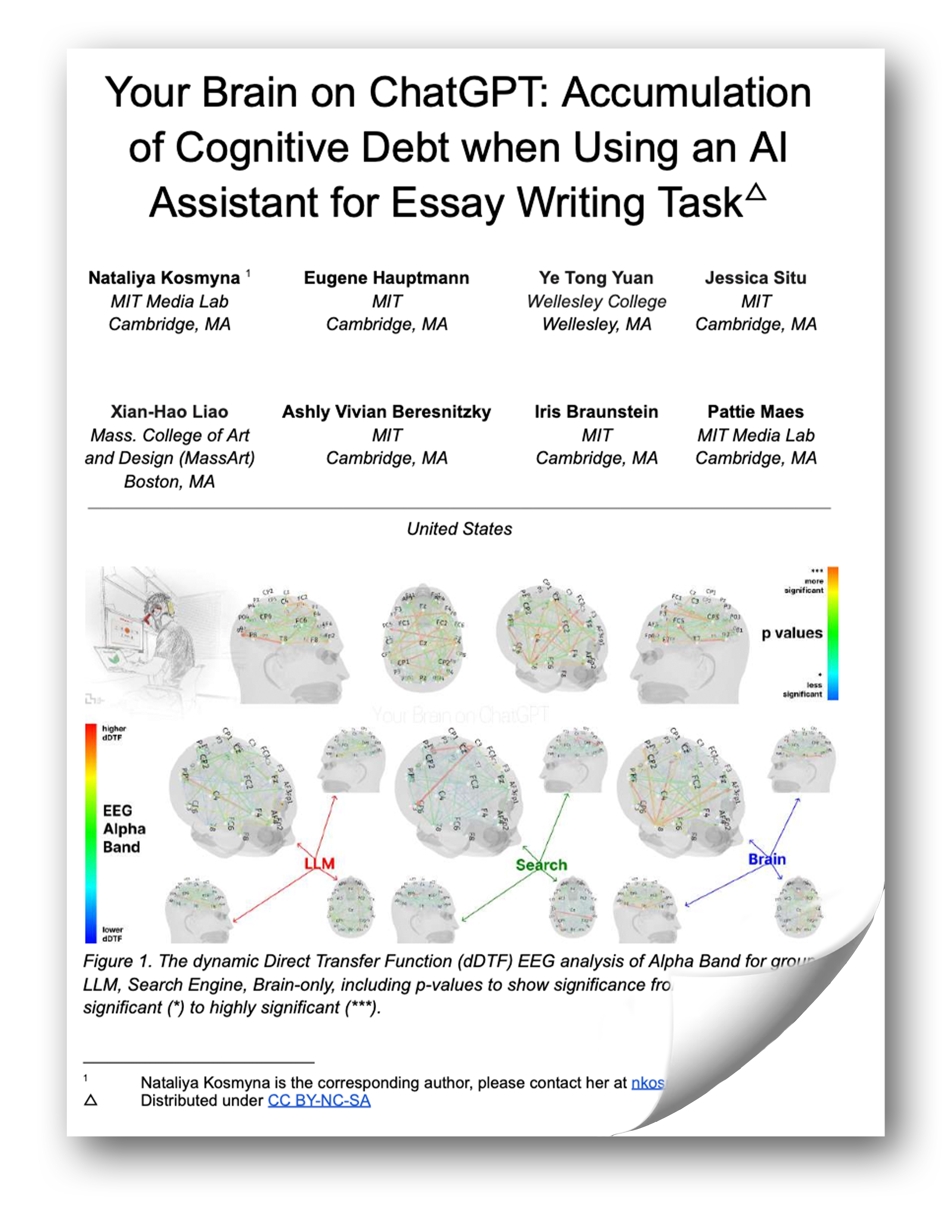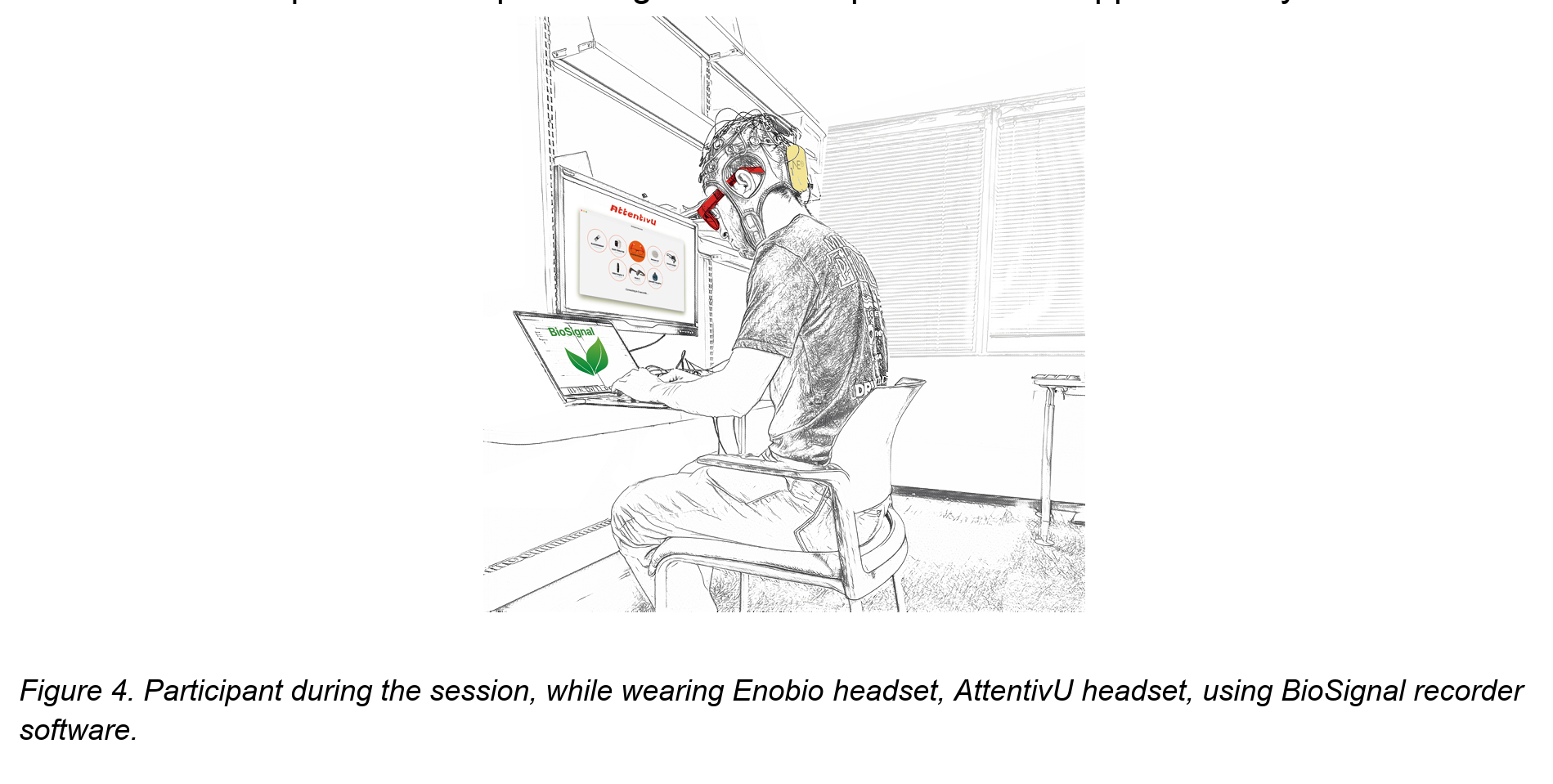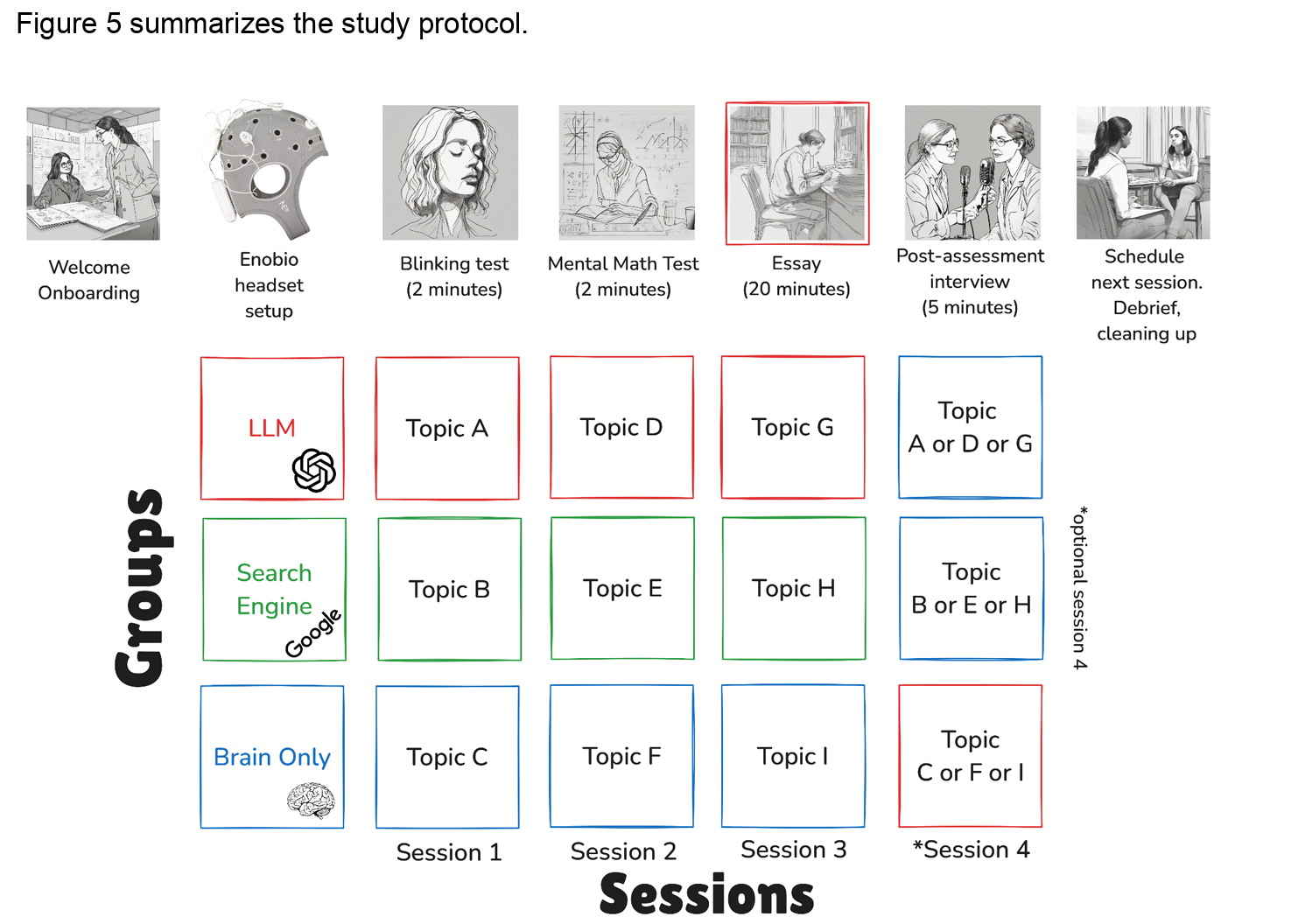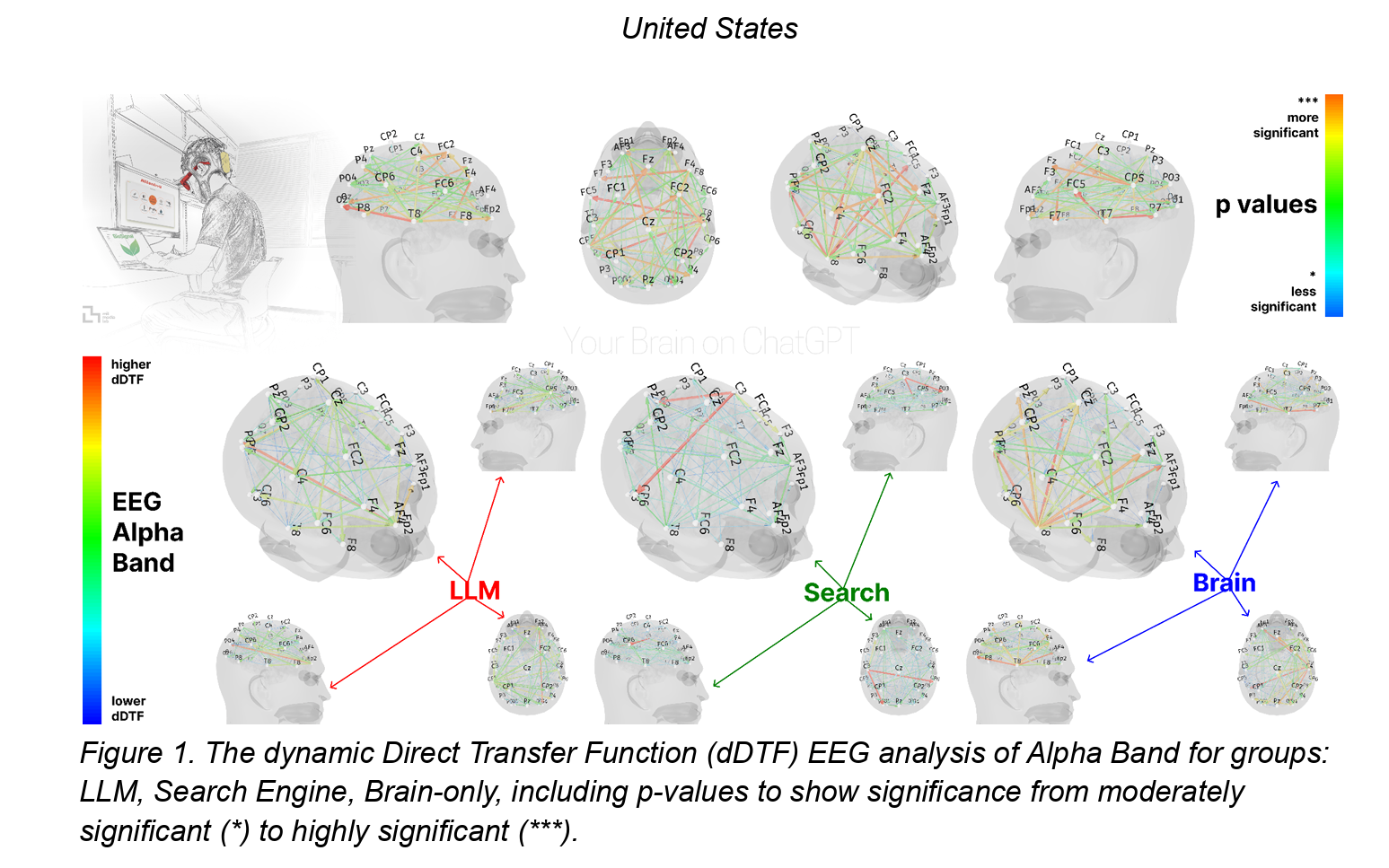July 11, 2025
MIT researchers recently published a major cognitive neuroscience study comparing how our brains behave when using AI tools like ChatGPT (referred to as LLM or LargeLanguage Models) versus doing our own research using search engines.


So what were the findings?
In low-frequency brainwaves, participants who searched manually (Search group) activated regions linked to internal regulation and memory retrieval. Those who used ChatGPT-style tools (LLM group) showed weaker memory circuits and shifted energy toward motor output — typing, clicking, and scanning.

The most sobering part? Those who used AI to answer questions started mimicking its logic and tone —even when it was wrong. As one MIT researcher summarized, “we saw strong evidence of reduced executive function and discernment."
In short: The brain began outsourcing not just memory, but judgment.
We rely on our phones to remember birthdays. We trust GPS to guide us across town (or even home, work or 10 other places we know how to get to anyway). We use calendars, alerts, and to-do lists to help us function. That’s not bad — it’s called cognitive offloading, and it’s a normal way to manage complexity.
But what happens when we offload too much? When we start offloading critical thinking to LLMs?

This study shows that AI is training our brains to disengage.
The more we rely on external systems to think for us, the less we question them— and the harder it becomes to trace where our thoughts and beliefs actually came from. The study showed people forgot content they had just written and even confused who came up with it.
However, just like any tool, the quality depends on the level of the user. A particularly interesting passage that stood out to me (you can read the full 206 page PDF here) was this:
“There is also a clear distinction in how higher-competence and lower-competence learners utilized LLMs, which influenced their cognitive engagement and learning outcomes [43]. Higher-competence learners strategically used LLMs as a tool for active learning. They used it to revisit and synthesize information to construct coherent knowledge structures; this reduced cognitive strain while remaining deeply engaged with the material. However, the lower-competence group often relied on the immediacy of LLM responses instead of going through the iterative processes involved in traditional learning methods (e.g. rephrasing or synthesizing material). This led to a decrease in the germane cognitive load essential for 15 schema construction and deep understanding [43]. As a result, the potential of LLMs to support meaningful learning depends significantly on the user's approach and mindset.”

Your way of thinking can be the difference between using a tool or abdicating your God-given cognitive abilities. If you’re not discerning, your entire mindset could shift without you knowing it. One day you’ll realize you’ve essentially been brainwashed, and your thoughts are no longer your own.
Be discerning. Use your brain. Take the ten minutes to write the article, email, or text. Use the tools to enhance — not replace — your thinking. If you don’t, you’ll be accumulating a debt that will be have to paid sooner or later…